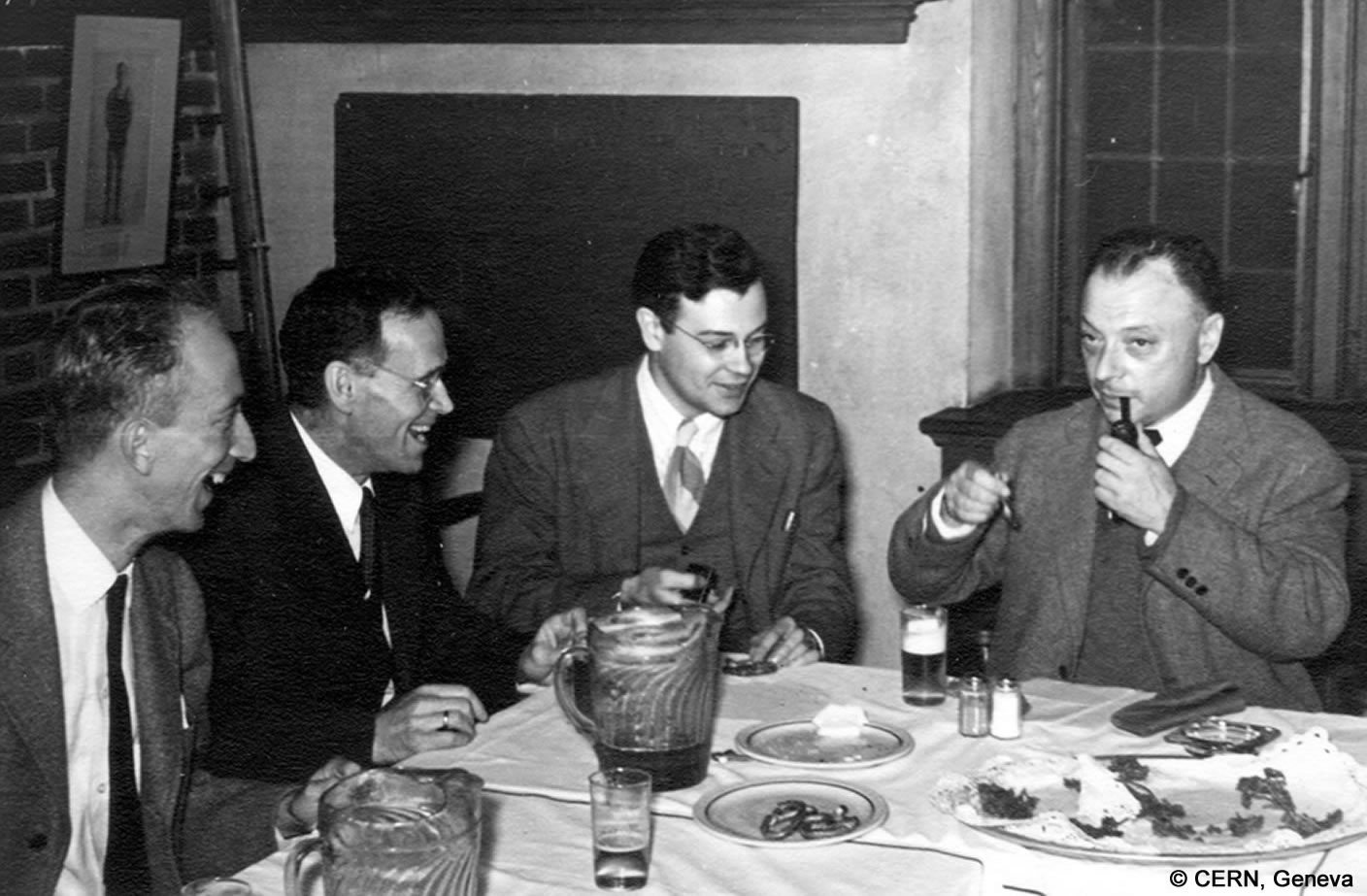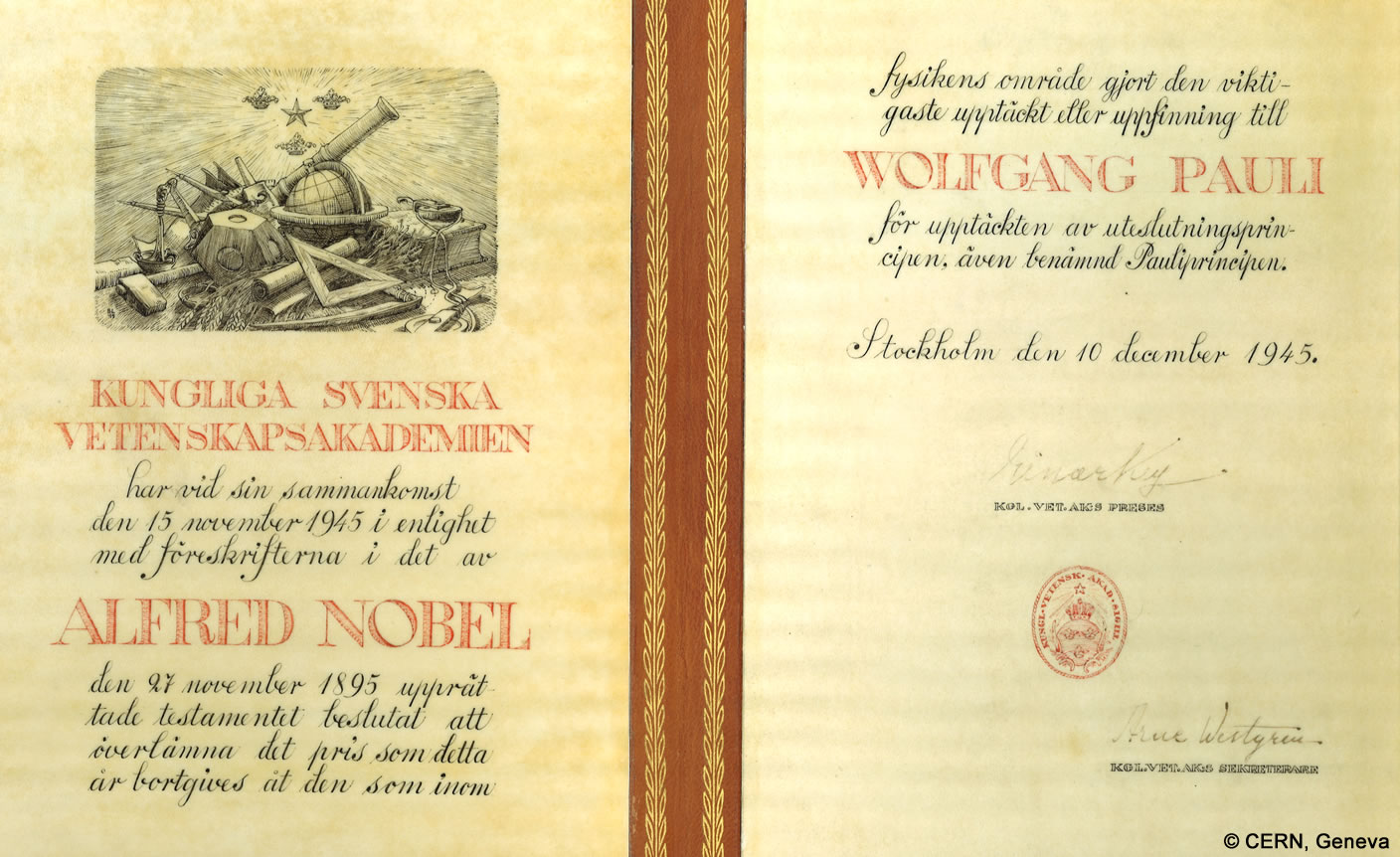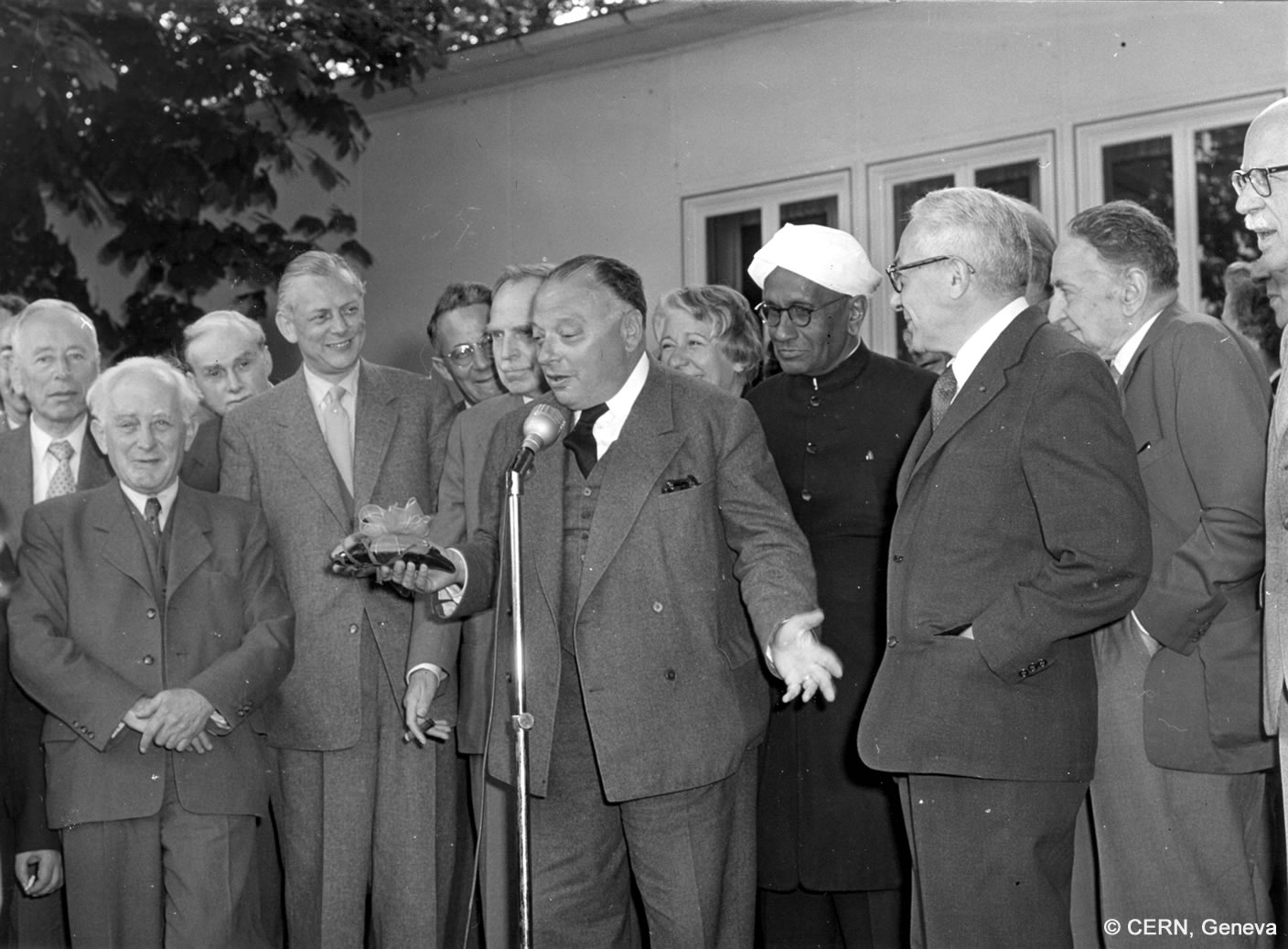Nobel Prize for Physics 1945

In November 1945, Wolfgang Pauli was awarded the Nobel Prize for Physics for his discovery of the exclusion principle. The event was welcomed with enthusiasm at Princeton because Pauli was the first active member of the Institute to receive this ultimate accolade. His colleagues staged a large official ceremony to which many prominent people were invited. The climax was the spontaneous address by Albert Einstein, in which he described Pauli as his intellectual successor.


After all these honours and offers, nobody in Zurich reckoned seriously on Wolfgang Pauli's ever returning. His Zurich colleagues and the School Council were all the more surprised when in April 1946 Pauli did indeed fulfil his promise to take up his chair again. It had not been easy for Pauli to turn down the professorship at Columbia University or Princeton. A major role in this decision was apparently played by the increasing influence of the military over physics research in the United States, of which Pauli disapproved as a proponent of free science.